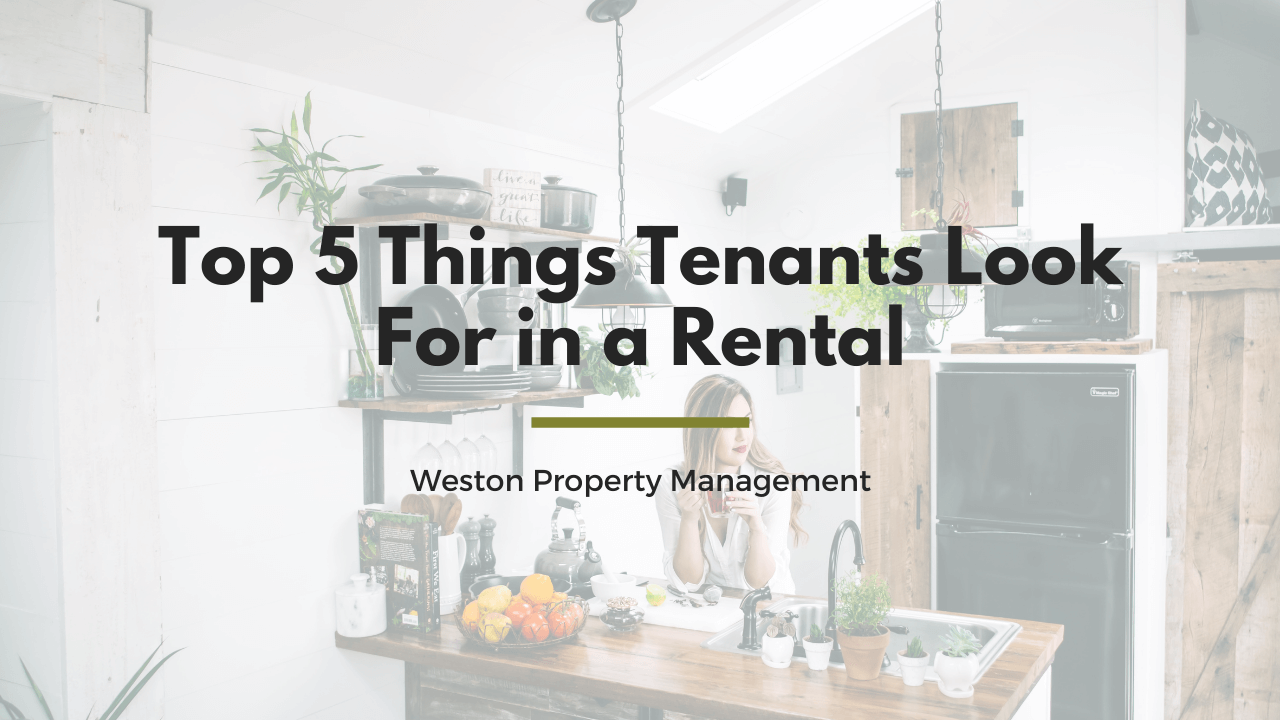We can help you make your Weston rental property more attractive to great tenants. For more information, please contact us at Florida Property Management Services.
Top 5 Things Tenants Look For in a Weston Rental Property

Tenants are more educated than ever before, and when they’re looking for a new rental home, they’re going to have a list of what they expect to find. Most data tells us that the two most important things to tenants are price and location. Things like square footage and neighborhood amenities are often negotiable, but they want a good location and they want a rental value that makes sense for the market.
When you’re
renting out your Weston property, make sure you’re thinking like a tenant. This will help you
attract the best renters.
1. Weston Rental Property Location
Location is always an important factor, whether we’re talking about the Weston real estate market or the Weston rental market. Your best tenants will want to live in a desirable area that has good schools, good shopping, and plenty of places for dining out and enjoying both entertainment and recreation opportunities. Tenants want to be close to highways. More remote rental properties will definitely take a bit longer to rent.
Before you invest in a Weston rental property, make sure you’re evaluating the location. Is this a neighborhood that tenants will want to live in? Think about whether there’s an HOA as well. Most tenants are happy to live in an HOA, but others will find the rules and requirements cumbersome.
2. Price and Value
Tenants want to live in a home they can afford. They will choose properties that offer value. Your potential renters know what homes like yours are renting for. When you’re establishing a rental value for your property, make sure you’re using data on comparable properties in the immediate area. An overpriced home will only be overlooked by tenants. They want to feel like they’re getting a good deal. If you offer to include lawn service or you include a utility such as water or internet, you’ll have an easier time
attracting good tenants who are looking for perks.
3. Tenants Look for Cleanliness
It may seem obvious that tenants want a clean home, but you’d be surprised at the number of landlords who are willing to rent out a property with dead bugs gathering in the corners and dust coated to the ceiling fans. Tenants are not going to move into another person’s dirt. Make sure you hire professional cleaners to get inside and do a thorough job before you hand over the keys or even start showing the property.
4. Updates and Upgrades Matter to Tenants
Tenants will also be looking for
well-maintained properties that are attractive and welcoming. Check your curb appeal. Make sure the grass is mowed and the trees are trimmed. Take a look at your light fixtures and your hardware to make sure everything looks new and up to date. If your appliances are looking worn and dated, replace them with energy efficient models. If your property is in good condition, you don’t have to do a complete remodel. Simply make a few cost-effective improvements, and you’ll attract better tenants and higher rent values.
5. Professional Weston Property Management
Tenants are looking for professionally managed homes for a number of reasons. First, they appreciate being able to pay rent and request maintenance online, and they know that independent landlords can rarely offer those conveniences. They also know that professional property managers know the laws, adhere to the requirements in the landlord and tenant regulations, and have systems and processes in place to address every potential problem. This provides tenants peace of mind the same way it delivers less stress to owners.














